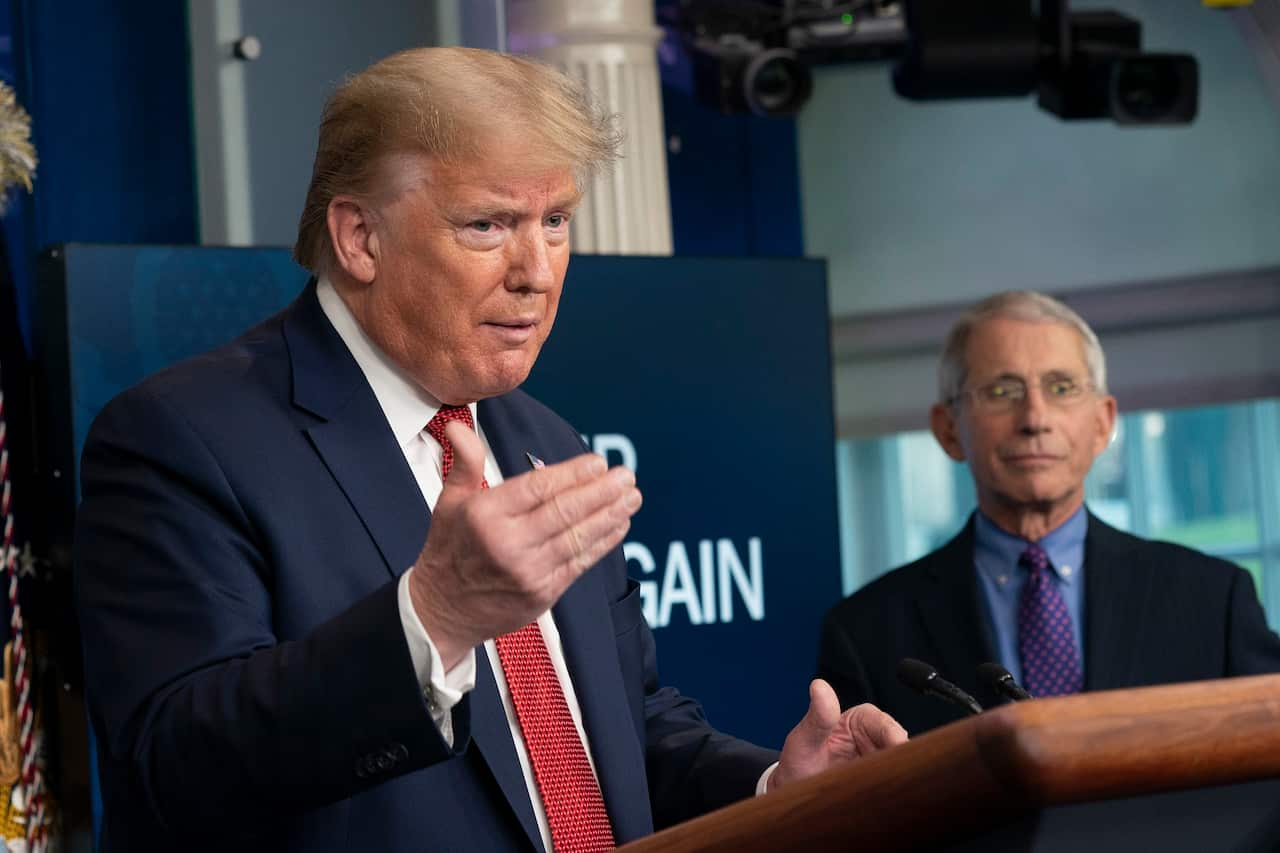The World Health Organisation’s role in combatting the global spread of coronavirus is in the stoplight once again.
United States President Donald Trump said he is halting over $620 million in funding to the WHO - the equivalent of the 15 per cent of the body's annual budget - and officials around the world are stepping up their calls for greater scrutiny of the health body.
On 30 January 2020 the body recommended against widespread travel bans to contain COVID-19, a decision which has now been widely criticised.

The WHO was established in 1948 with the goal of promoting health and addressing the most pressing health concerns around the world and has been on the frontline of crisis in the past, including the 2014 Ebola outbreak in West Africa and the 2003 SARS outbreak.
The organisation, established and funded by the United Nations member nations, coordinates government’s around the world’s response to health issues as well as working with non-government health organisations.
WHO's past record
The WHO has been particularly successful in its global efforts to coordinate the eradication of smallpox and the virtual eradication of polio.
On other fronts, such as the eradication of malaria, some say the body has been far less successful.
Coronavirus is far from the first time the WHO has come under criticism. In 2014 many criticised the body for its slow response to the Ebola outbreak which resulted in some 10,000 deaths.
Many developing nations with less developed healthcare systems are more reliant on support for the WHO in the outbreak of crises.
In the face of COVID-19 the body has been accused by Mr Trump of being too “China-centric” and for failing to notify the world about the potential coronavirus threat.
But the body is representative of the global community, as representatives from the organisation’s governing body, the World Health Assembly, are chosen by the 193 United Nations member states.
The organisation employs more than 7,000 people worldwide including scientists, epidemiologists, doctors, economists and policy experts.
People in Australia must stay at least 1.5 metres away from others and gatherings are limited to two people unless you are with your family or household.
If you believe you may have contracted the virus, call your doctor (don’t visit) or contact the national Coronavirus Health Information Hotline on 1800 020 080.
If you are struggling to breathe or experiencing a medical emergency, call 000.
SBS is committed to informing Australia’s diverse communities about the latest COVID-19 developments. News and information is available in 63 languages at sbs.com.au/coronavirus

